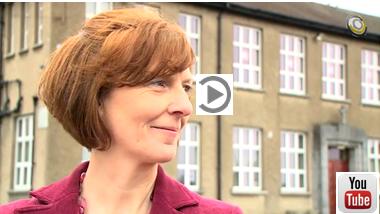Local Support Groups
Where would you go to de-brief with colleagues who understand you without explanation, where you can discuss your concerns and leave with a clear plan of action, develop skills as a reflective practitioner and establish an effective means of self care? Don’t wait, find your Local Support Group.
Watch this short film by Catríona O’Reilly, Principal, Our Lady of Good Counsel School, Ferrybank, Waterford on her experience as a Support Group member.
Local Support Groups – Why I’m a believer
The most commonly shared characteristics of successful Support Groups are:
- One member co-ordinates (usually by text) the date and venue of the next meeting
- Meetings take place on a regular basis e.g. second Thursday of the month
- There are no external speakers
- There are no minutes or reports
- There is no formal written agenda; at the end of each meeting one topic may be chosen as the focus of discussion for the next meeting. Following discussion on main topic, principals discuss other current issues
- Meetings are generally held immediately after school or by night – some groups meet in the afternoons of administration days
- Groups are usually small – normally 8 to 12 members
- A high degree of confidentiality, discretion and trust prevails
- A regular social dimension is recommended– end of term meal etc
- Frequent sharing of resources, ideas and strategies takes place.
Take the Lead…
If there is no Local Support Group in operation in your area, why not consider taking the initiative and contact your local colleagues? Alternatively, please contact the IPPN National Support Office to express your interest and we will undertake to establish a local group in your area. Call the National Support Office on 1890 21 22 23 or email jennifer.mccarthy@ippn.ie.
Note: Principals’ Support Groups do not typically include deputy principals as they are designed to meet the needs of those in the role of principal. IPPN is establishing support groups for deputy principals in each Education Centre, to ensure that the co-leadership role of deputy principal can benefit equally from the type of support offered in these informal, collegial settings.
This article first appeared in Leadership+
Virginia O’Mahony, IPPN Assistant Director talks about how important her Support Group was to her:
'In the early nineties, I first became aware of the existence of Principals’ Support Groups. In the absence at that time of any form of training, Principals were meeting in informal groups to provide professional support to each other. I joined a support group then and it became a very significant part of my professional life for more than ten years. The friendships formed within that Support Group remain strong to this day. So how do Support Groups work and why are they so positive for Principals?
Support Groups form the basic cell structure of IPPN. Principals’ Support Groups have been very successful and many enjoy the support of the Local Education Centre, which provides or pays for a meeting room. Some support groups meet in each other’s school on a rotational basis. Every Support Group has its own dynamic and its own characteristic spirit.
Principals are obliged to attend many meetings for which they have to spend time and effort in preparation. Most meetings produce work for the Principal afterwards. Support Group meetings are not like other meetings. The Principal can expect support, collegiality, dialogue and empathy from fellow Principals within the group. You come away from Support Group meeting enriched and encouraged. Support Groups break the isolation that can be part of the role of the Principal and in addition, members often support each other between meetings. Many professions successfully follow this method of professional support among their members.'




















































